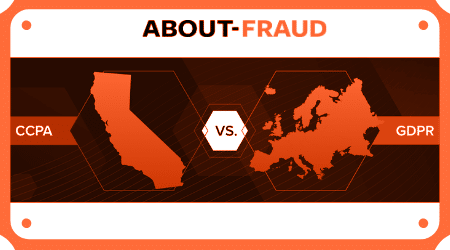
2020 Priorities: Pre-Authorization Risk Screening, CCPA & More!
The record number of data breaches in 2019 serves as a great reminder of why new advances in digital identity verification (DIDV) are increasingly critical. However, I didn’t close out the year thinking about the exceptionally high occurrence in data breach rates. Instead, I chose to focus on the hard-won battles businesses have fought to help lessen the impact of these data breaches on their customers and businesses. It’s not been easy work, but it sure has paid off. From using pre-authorization to reduce friction on a customer’s impending transaction, to selectively choosing to meet higher data privacy standards, like CCPA, to win the trust of customers, powerful new approaches to DIDV began to cement in 2019 and will continue to gain momentum in 2020.
Here are a few predictions around these and related trends that I think we’ll see a lot more of in the year ahead.
Organizations will shift to pre-authorization risk screening by building their own Machine Learning (ML) models to improve the customer experience.
Whether it’s the fear of pushing out good customers, the price tags tied to rejected transaction, or the Transaction Risk Analysis (TRA) requirements under PSD2, ML pre-auth is the answer to improve the customer experience, positively affect authorizations, and adhere to the new regulations. With ML now a central part of their strategy, businesses won’t just invest in third party models and data, but they will look to build their own models for optimal performance and more control over their customer experience.
Businesses that can cut friction at checkout will see double digit increases in transaction volume.
According to a recent survey of 7,000 consumers across North America and Europe, an astounding 66 percent have abandoned their account opening or transaction on at least one occasion due to friction, including the process taking too long. Businesses that eliminate this type of friction universally, using new approaches such as pre-auth risk assessment, will experience double digit gains in transaction volume.
Regulatory initiatives for consumer protection will remain a priority.
While in the U.S., Congress will push to pass a GDPR-like law in 2020, a full plate of priorities will prove too much of a distraction for getting a new law passed in the next calendar year. In the meantime, CCPA will likely function as the default privacy standard in the U.S., led by forward-looking businesses such as Microsoft.
Similarly, businesses that elect to meet the CCPA requirements will gain an advantage with customers, earning their trust and loyalty over other laggards.
Merchants will increasingly offer Point-of-Sale (POS) lending at checkout to attract more shoppers, where fast/easy approval will be key to adoption.
2020 will bring a whole slew of new POS lending (also called fixed payment loans) options to shoppers wanting to make payments for goods over time without the hassle of a credit card. Fraudsters will also be trying these layaway-like options to make off with goods. But the biggest risk to merchants won’t be letting fraud through – it will be not having an authorization process that matches the ease of the fixed payment option itself to ultimately secure these new customers.
Businesses will be the big winners as banks battle each other with innovative B2B payments options.
Capital One, VISA, American Express and more have been making moves to bring innovative payments options to their business customers, a key one being instant credit. Because businesses will have so many compelling options to choose from in the marketplace, banks will have to rely on speed and convenience of approval to set themselves apart from the competition.
It’s important to note that behind each of these advancements is a shift toward more customer-centric thinking, planning and practices. In fact, I think we’ll see even more exciting innovation as a result of this focus as the new year unfolds. What’s good for customers is good for business.
| Tagged with: | machine learning |
| Posted in: | AF Education |
